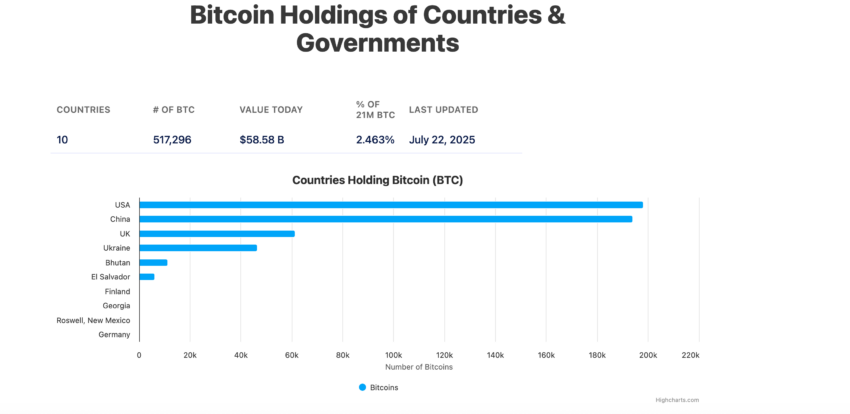Asia’s Bitcoin Reserve Gamble: Can National Strategies Actually Work?
Nations across Asia are placing billion-dollar bets on Bitcoin reserves—but can sovereign crypto strategies overcome regulatory chaos and market volatility?
The Regulatory Minefield
From Japan's FSA tightening exchange oversight to Singapore's cautious embrace, Asian regulators walk a tightrope between innovation and investor protection. Most still treat crypto as speculative assets—not reserve currency material.
Volatility Versus Vision
Bitcoin's 70% annual swings make treasury managers sweat. Stacking satoshis alongside stable foreign reserves? That's either genius or insanity—depending on which month you check the balance sheet.
Geopolitical Chess Move
China's digital yuan rollout pressures neighbors to develop counterplays. Bitcoin reserves could become the ultimate monetary hedge—if countries survive the liquidity rollercoaster first.
Execution Reality Check
Cold storage solutions require military-grade security. Portfolio rebalancing demands crypto-native treasury teams. Most finance ministries still struggle with PDF attachments—good luck managing multisig wallets.
Because nothing says 'stable national strategy' like betting the treasury on an asset that can drop 20% before lunch—bankers love that sort of excitement in their reserve portfolios.
Hong Kong Writes the Rulebook
– On April 30, 2024, HKEX listed Asia’s first spot Bitcoin and ether ETFs, with in-kind creation reducing friction. The ASX followed on June 20, 2024. Korea’s Virtual Asset User Protection Act took effect on July 19, 2024, requiring 80% cold storage and insurance. In January 2025, Indonesia’s OJK assumed oversight, shifting supervision into financial regulation.
– China has no unified rules for seized bitcoin. Local governments dispose of them inconsistently, prompting calls for central coordination, Reuters noted. In Hong Kong, banks and fintechs prepare applications under the new licensing regime. Japan’s Diet asked in December 2024 whether bitcoin could serve as reserves; the government dismissed the idea in its official record. In Taiwan, a legislator proposed allocating 0.1% of GDP to a national bitcoin reserve, according to CommonWealth Magazine.
– Australia’s ETF enabled superannuation funds to allocate legally. Hong Kong’s listings drew custodians and auditors. Korea emphasizes protection, Hong Kong emphasizes access, and Indonesia strengthens supervision—divergent policies shape where capital flows.
– The US refrained from confiscating bitcoin as a strategic reserve, and plans to include crypto in 401(k)s could expose savers to political and market risks. China is reviewing yuan-backed stablecoins to boost renminbi use in global trade. Hong Kong passed its Stablecoins Bill in May and started licensing for fiat-referenced issuers under the Hong Kong Monetary Authority.
Seizures Create Strategic Dilemmas
Most state-controlled bitcoin comes from seizures, not reserves. China’s PlusToken case yielded about 195,000 BTC. The CPS announced record seizures in the U.K. in 2024. The U.S. chose retention, while Germany liquidated. Divergent policies inject volatility when states suddenly sell.

According to CoinGecko, governments worldwide now hold about 463,741 BTC—2.3% of the supply. These caches reflect enforcement more than strategy. Whether they remain dormant, liquidated, or reclassified remains unsettled.
– Gold ETFs, two decades ago, unlocked institutional flows. Crypto ETFs follow that arc but face AML and custody hurdles. Bitcoin differs: its government balances come mainly from seizures. IMF frameworks exclude crypto from reserves, which is blocking official adoption for now.
– Uncoordinated government sales could shake markets. Weak backing risks destabilizing stablecoins. Overregulation drives liquidity offshore. BeInCrypto reported that poorly designed U.S. retirement integration could amplify volatility. Declaring reserves without accounting legitimacy risks credibility loss.
Politics Enter the Reserve Debate
Legislatures increasingly test the reserve question. Taiwan’s proposal sparked debate. Japan’s Diet raised the issue, but the finance ministry dismissed it. According to the Brazilian Chamber record, Brazil’s Chamber of Deputies held a 2025 hearing on allocating up to 5% of reserves to Bitcoin. In the US, Texas codified a state-level bitcoin reserve. These moves show that politics, not just markets, drive the reserve conversation.
- 2.3%: share of bitcoin controlled by governments
- 195,000: bitcoin seized in China’s PlusToken case
- 80%: cold-storage requirement in Korea
- April 30, 2024: Hong Kong ETF launch
- May 21, 2025: Hong Kong stablecoin law passed
“The introduction of Spot VA ETFs in Hong Kong is the latest exciting addition to HKEX’s diverse and vibrant ETP ecosystem, providing investors with access to a new asset class.” — HKEX
“The Government welcomed the passage of the Stablecoins Bill… to establish a licensing regime for fiat-referenced stablecoins issuers in Hong Kong.” — HKMA
“The Act… requires VIRTUAL asset service providers to safely manage and store their customers’ deposits and virtual assets.” — FSC Korea
China’s decisions on seized bitcoin and yuan-backed stablecoins will set the tone. Hong Kong’s licensing regime could bring banks into the issuance process. U.S. reserves and retirement debates may pressure others to adjust. Asia must decide whether to prepare or remain cautious.

